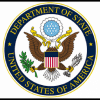Russia-Ukraine conflict and the shifting alliances in Central Asia

The war between Russia and Ukraine has become a major geopolitical crisis of the 21st century. Following Russia's invasion of Ukraine in February 2022, numerous countries, including the US, UK, EU, Australia, Canada, and Japan, have imposed over 19,535 sanctions against Russia. Their primary focus has been on Russia's financial resources. Approximately half of its total reserves—amounting to $350 billion—were frozen, impacting its foreign currency reserves. According to the EU, approximately 70 percent of the assets of Russian banks were frozen by a high-speed messaging service for financial institutions.
The war between Russia and Ukraine has undoubtedly influenced the relationship between Moscow and its allies. Following the imposition of sanctions on Russia, Russian President Vladimir Putin made a significant swing towards China, signing a series of agreements. The impact of this war was not only on Western and Russian relations but also on Russia's close allies. In this regard, Central Asian countries are now forced to strike a difficult balance between their long-standing relations with Russia and other large powers. While the region has historically relied on Russia for economic and security relationships, the protracted conflict has produced new challenges and possibilities, prompting these countries to pursue a more assertive but cautious foreign policy. At the same time, this upheaval and Russia's dependence on China create a golden opportunity for China to strengthen its ties with Central Asia.
Though, since the dissolution of the Soviet Union in 1991, the five Central Asian countries have gained more political and economic independence. Historically, the Central Asian Republics (CARs)—Kazakhstan, Kyrgyzstan, Tajikistan, Uzbekistan, and Turkmenistan—have always viewed Russia as a guarantor of security for internal stability and protection against foreign threats. Since their independence from the Soviet Union, Central Asian countries have faced a difficult transition from a common Soviet history to divergent nation-building and economic liberalisation pathways. The five Central Asian states are part of one or more Russian-led organisations, including the Commonwealth of Independent States (CIS), the Collective Security Treaty Organisation (CSTO), and the Eurasian Economic Union. These institutions provide forums for regional security and economic partnership with Russia, allowing Russia to maintain a substantial influence in Central Asia's geopolitical landscape. For example, in 2021, when the Taliban reclaimed control in Afghanistan, Russia stationed military equipment on the Tajik-Afghan border as part of the CSTO and conducted joint military drills with Uzbekistan and Tajikistan within 20 kilometres from the Afghan border. This exhibition aims to demonstrate Russia's military readiness in its own backyard in the event of an attack on Central Asia by the Taliban or other terrorist outfits. Similarly, in January 2022, Moscow dispatched soldiers from the CSTO to quash unrest in Kazakhstan.
Economically, Central Asia also depended on Russia. Moscow's energy and trade participation in the region was intended to lock the governments into a vital dependency, giving the Kremlin control over their internal and foreign policy decisions. For example, Kazakhstan exports 80 percent of its oil through the Caspian oil pipeline, which passes through Russian territory. The number of economic migrants who go to Russia for work is relatively high compared to other migrant workers worldwide. For example, approximately nine million Central Asians live and work in Russia, and practically every major city relies on their labour. According to a June 2022 report by the United Nations' International Organization for Migration (IOM), remittances from Russia to Kyrgyzstan and Tajikistan accounted for 31 percent and 27 percent of GDP, respectively, in 2020. The majority of this money is expected to come from their employees in Russia. In 2021, remittances from Russia accounted for 55 percent of total transfers to Uzbekistan and 51 percent to Kazakhstan.
However, the CARs' internal unrest, Russia's actions in Ukraine, and growing concerns about sovereignty have forced Central Asian nations to look for new allies for long-term security cooperation and are diversifying their foreign policy in an effort to reduce Moscow's influence. Furthermore, Western sanctions on Russia led the CARs to seek alternate channels to sell commodities to the world market. Therefore, CARs have responded to the altering geopolitical landscape in a variety of ways, including preserving economic links with Russia, avoiding outright criticism of Moscow, and increasing partnerships with other global powers such as China, the West, and Turkey.
Since the beginning of the Russian-Ukraine war, Central Asian leaders have also been at the forefront of the so-called "multi-vector" foreign policy approach, aiming for balanced relations with Russia as well as other countries such as China, the West, and Turkey. The states of the region refused to accept Russia's recently seized areas in Ukraine, and some issued public declarations in support of Ukraine's territorial integrity in the early days of the 2022 war.
Nonetheless, these powers did not openly condemn Vladimir Putin and his "special military operation." Various factors are at play here, including economic reliance, Central Asian immigration, and membership in Russia-led institutions.
Moreover, according to polls, the majority of Central Asians—70 percent in Kyrgyzstan, 55 percent in Kazakhstan, and 30 percent in Uzbekistan—ascribe the regions current economic difficulties to Russia's invasion of Ukraine. The popularity of the Russian language is declining, entertainment venues are refusing to host Russian performers, and there have been multiple anti-war protests in Almaty and Bishkek. Russia has blocked Central Asian media sites for attempting to provide unbiased coverage of the conflict in Ukraine. The public conversation has returned to the topic of decolonisation.
On the other hand, Central Asia is a strategically important region for China due to its abundant resources, transit links, and shared border, which are vital for China's security. China's Belt and Road Initiative (BRI) underscores its interest in the region, leveraging growing unease and Russia's focus on Ukraine. Central Asian nations increasingly rely on China for both security and economic resources, potentially challenging Russian dominance and jeopardising Moscow's security interests. Despite a recent decline in historical hostility between the two sides, Russia believes that China's increasing economy might soon enable it to contest Moscow's geopolitical sway in Central Asia.
Notably, China is assisting the CARs in strengthening their security and law enforcement capabilities by capitalising on their worries about Russia. During his visit to Central Asia in September 2022, Chinese President Xi Jinping stated that he supported Kazakhstan's territorial integrity in light of these exceptional circumstances. When Xi called the China-Central Asia Summit to order in Xi'an in May 2023, he emphasised the significance of the security, sovereignty, independence, and territorial integrity of the CARs. In the midst of the intensifying powerplay among the world's strongest nations, Beijing is taking big measures to expand its regional influence in order to counter the US's encirclement of China.
China is still dedicated to its long-standing regional objectives. With over half of China's trade and investment going to Kazakhstan, Beijing sees the country as its main economic partner in Central Asia. China's economic interests are further supported by the transportation opportunities that have emerged since Russia's invasion.
Beijing is becoming increasingly interested in playing the role of a security supplier in the region due to its rising concerns about the unrest in Afghanistan and Central Asia. This development may cause future difficulties with Moscow. China-Central Asia's security cooperation has already been strengthened by BRI efforts. More robust security allies like China could undermine Russia's position as the principal security guarantor. China's growing influence in Central Asia after the invasion presents a challenge to Moscow's dominance, potentially altering the dynamics of security cooperation and posing future complications for Moscow.
Md Tariqul Islam Tanvir is Erasmus scholar in the International Master in Central & East European, Russian & Eurasian Studies programme at the University of Glasgow.
Views expressed in this article are the author's own.
We welcome your contributions and analysis of global events, and responses to our articles. To submit articles to Geopolitical Insights, please send an email to [email protected].
Follow The Daily Star Opinion on Facebook for the latest opinions, commentaries and analyses by experts and professionals. To contribute your article or letter to The Daily Star Opinion, see our guidelines for submission.

 For all latest news, follow The Daily Star's Google News channel.
For all latest news, follow The Daily Star's Google News channel. 










Comments